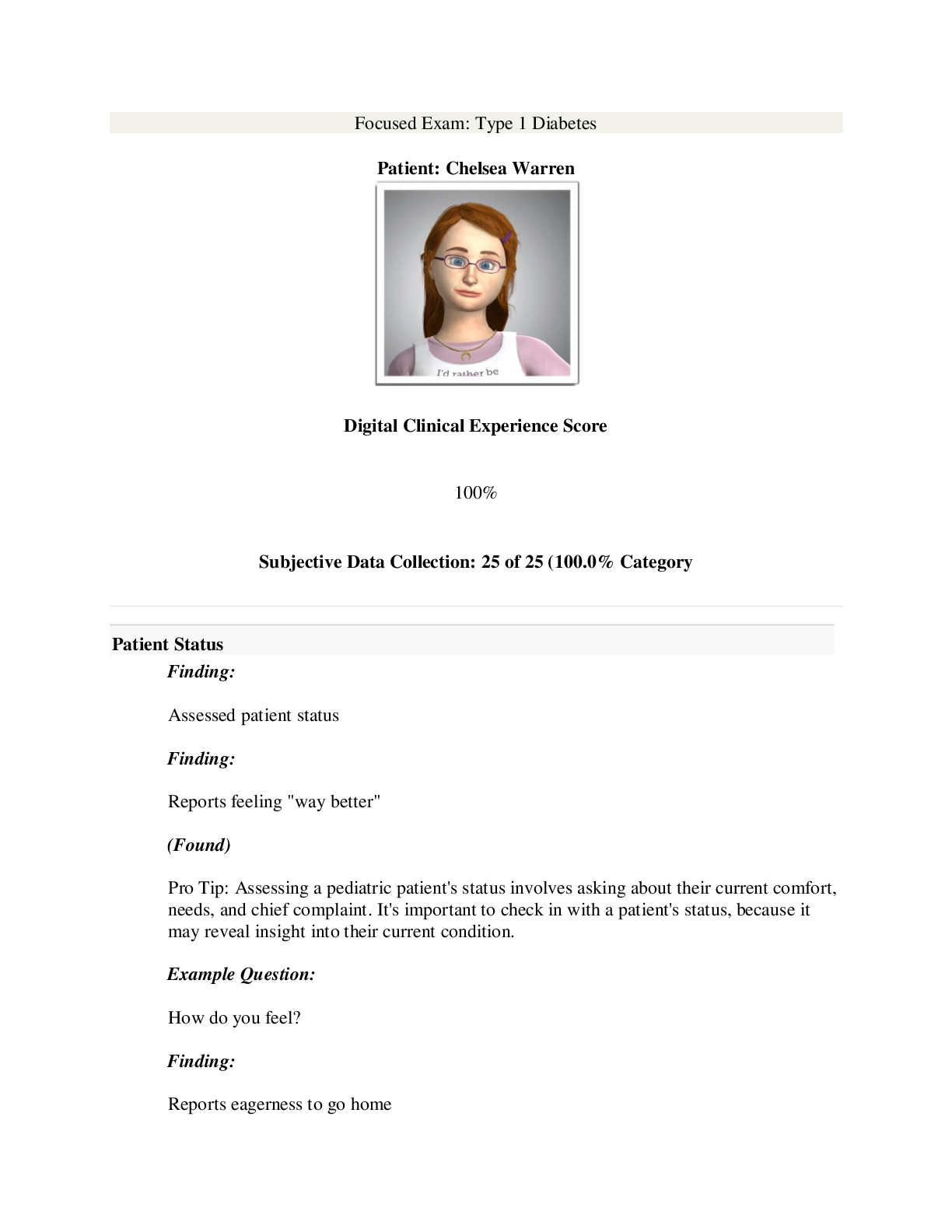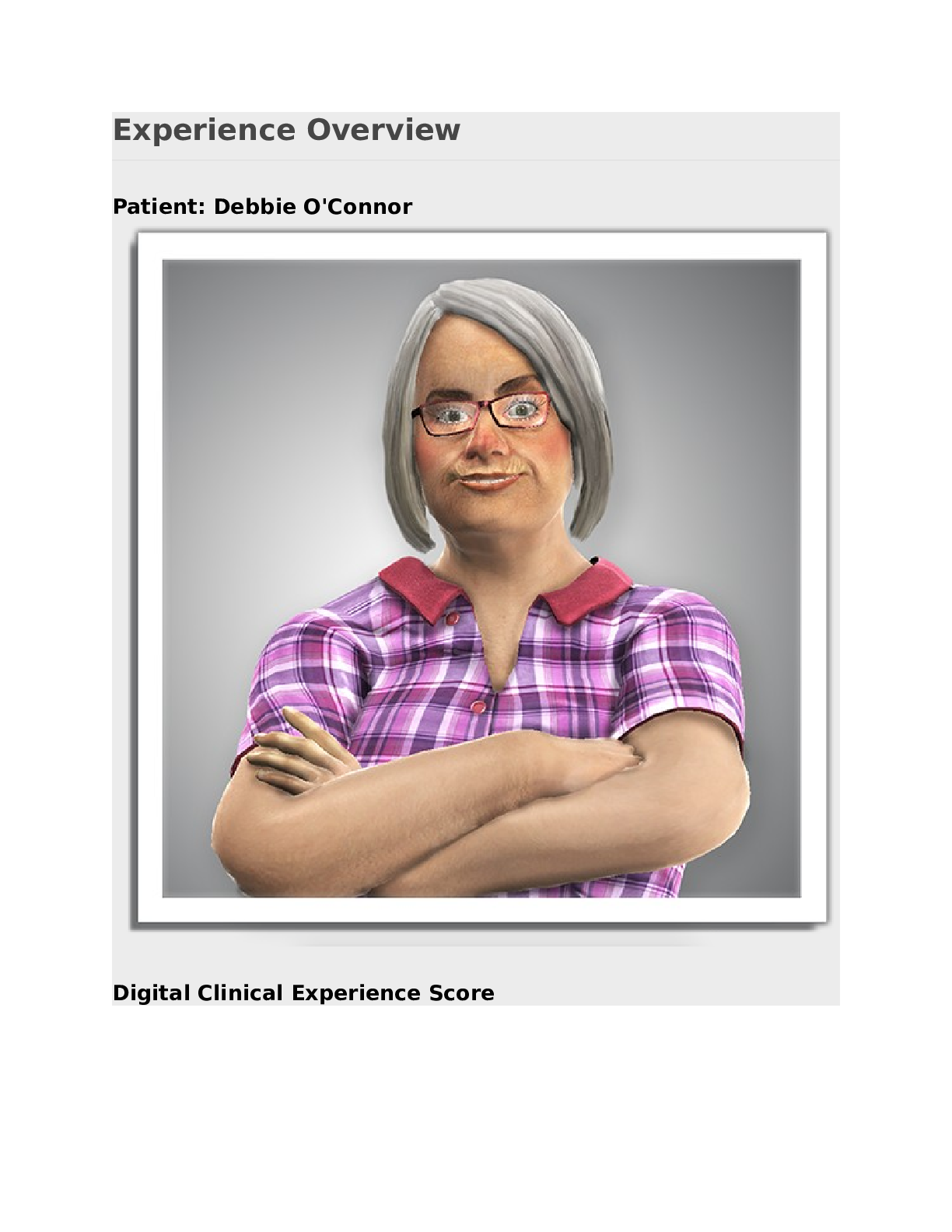Health Care > SHADOW HEALTH > Gabriel Martinez Asthma Shadow Health- Experience Overview and Digital Clinical Experience (2021) (All)
Gabriel Martinez Asthma Shadow Health- Experience Overview and Digital Clinical Experience (2021)
Document Content and Description Below
Experience Overview Patient: Gabriel Martinez Digital Clinical Experience Score 30.2% This score measures your performance on the Student Performance Index in relation to other students i... n comparable academic programs. Your instructor has chosen to scale your Student Performance Index score so that the average score on the index is a 80.0%. This score may not be your final grade if your instructor chooses to include additional components, such as documentation or time spent. Student Performance Index 8.3 out of 41 Proficiency Level: Beginning Beginning Developing Proficient Students rated as “beginning” are starting to develop their nursing competencies and clinical reasoning skills. In comparable nursing programs, 50% of students perform at the level of a beginning nurse. Review your results in the tabs on the left side of the page to identify areas for improvement. Subjective Data Collection 3 out of 31 Objective Data Collection 5.3 out of 6 Education and Empathy 0 out of 4 Time 25 minutes total spent in assignment Interaction with patient 24 minutes Post-exam activities 1 minute Comments If your instructor provides individual feedback on this assignment, it will appear here. Click to return to main page content. © Shadow Health® 2012 - 2020 (800) 860-3241 | Help Desk | Terms of Service | Privacy Subjective Data Collection: 3 of 31 (9.7%) Hover To Reveal... Hover over the Patient Data items below to reveal important information, including Pro Tips and Example Questions. Found: Indicates an item that you found. Available: Indicates an item that is available to be found. Category Scored Items Experts selected these topics as essential components of a strong, thorough interview with this patient. Patient Data Not Scored A combination of open and closed questions will yield better patient data. The following details are facts of the patient's case. Chief Complaint Patient Finding: Asked about patient's status Finding: Reports breathing is better (Found) Pro Tip: Assessing a pediatric patient's status involves asking about their current comfort, needs, and chief complaint. It's important to check in with a patient's status, because it may reveal insight into their current condition. Example Question: How are you? Finding: Reports chest soreness (Available) Pro Tip: Assessing a pediatric patient's status involves asking about their current comfort, needs, and chief complaint. It's important to check in with a patient's status, because it may reveal insight into their current condition. Example Question: How are you? Finding: Followed up on symptoms Finding: Reports wheezing (Available) Pro Tip: Assessing a pediatric patient's status involves asking about their current comfort, needs, and chief complaint. It's important to check in with a patient's status, because it may reveal insight into their current condition. Example Question: What is your chief complaint? Finding: Reports coughing is less frequent (Found) Pro Tip: Assessing a pediatric patient's status involves asking about their current comfort, needs, and chief complaint. It's important to check in with a patient's status, because it may reveal insight into their current condition. Example Question: What is your chief complaint? Finding: Reports chest does not feel as tight (Available) Pro Tip: Assessing a pediatric patient's status involves asking about their current comfort, needs, and chief complaint. It's important to check in with a patient's status, because it may reveal insight into their current condition. Example Question: What is your chief complaint? History of Present Illness Patient Finding: Followed up on onset of symptoms Finding: Reports symptoms started after playing kickball (Available) Pro Tip: Asking a pediatric patient about the duration and onset of their current health issues solicits information relevant to the history of their present illness. Details of their current complaint will help you follow-up on any present conditions or symptoms, such as the location of their pain or the amount of pain they may be experiencing. Example Question: What brings you to the hospital? Finding: Reports full-on asthma attack began when he got home (Available) Pro Tip: Asking a pediatric patient about the duration and onset of their current health issues solicits information relevant to the history of their present illness. Details of their current complaint will help you follow-up on any present conditions or symptoms, such as the location of their pain or the amount of pain they may be experiencing. Example Question: What brings you to the hospital? Finding: Followed up on aggravating factors Finding: Reports secondhand smoke exposure (Available) Pro Tip: Asking a pediatric patient about the duration and onset of their current health issues solicits information relevant to the history of their present illness. Details of their current complaint will help you follow-up on any present conditions or symptoms, such as the location of their pain or the amount of pain they may be experiencing. Example Question: What triggers your asthma? Finding: Denies being around secondhand smoke normally (Available) Pro Tip: Asking a pediatric patient about the duration and onset of their current health issues solicits information relevant to the history of their present illness. Details of their current complaint will help you follow-up on any present conditions or symptoms, such as the location of their pain or the amount of pain they may be experiencing. Example Question: What triggers your asthma? Home Medications Patient Finding: Followed up on rescue inhaler adherence Finding: Reports carrying rescue inhaler with him in the past (Found) Pro Tip: A pediatric patient's home medications can provide insight into the patient's current treatment and its efficacy. Inquiring into medication history, dosage, and frequency will help you understand the patient's background and how it may affect their current situation. Example Question: What is the name of the rescue inhaler you are currently using? Finding: Reports throwing away the rescue inhaler a few weeks ago (Available) Pro Tip: A pediatric patient's home medications can provide insight into the patient's current treatment and its efficacy. Inquiring into medication history, dosage, and frequency will help you understand the patient's background and how it may affect their current situation. Example Question: What is the name of the rescue inhaler you are currently using? Finding: Reports disliking rescue inhaler because of side effects (Found) Pro Tip: A pediatric patient's home medications can provide insight into the patient's current treatment and its efficacy. Inquiring into medication history, dosage, and frequency will help you understand the patient's background and how it may affect their current situation. Example Question: What do you take for your asthma? [Show More]
Last updated: 2 years ago
Preview 1 out of 34 pages

Buy this document to get the full access instantly
Instant Download Access after purchase
Buy NowInstant download
We Accept:

Reviews( 0 )
$12.00
Can't find what you want? Try our AI powered Search
Document information
Connected school, study & course
About the document
Uploaded On
Sep 22, 2021
Number of pages
34
Written in
Additional information
This document has been written for:
Uploaded
Sep 22, 2021
Downloads
0
Views
115


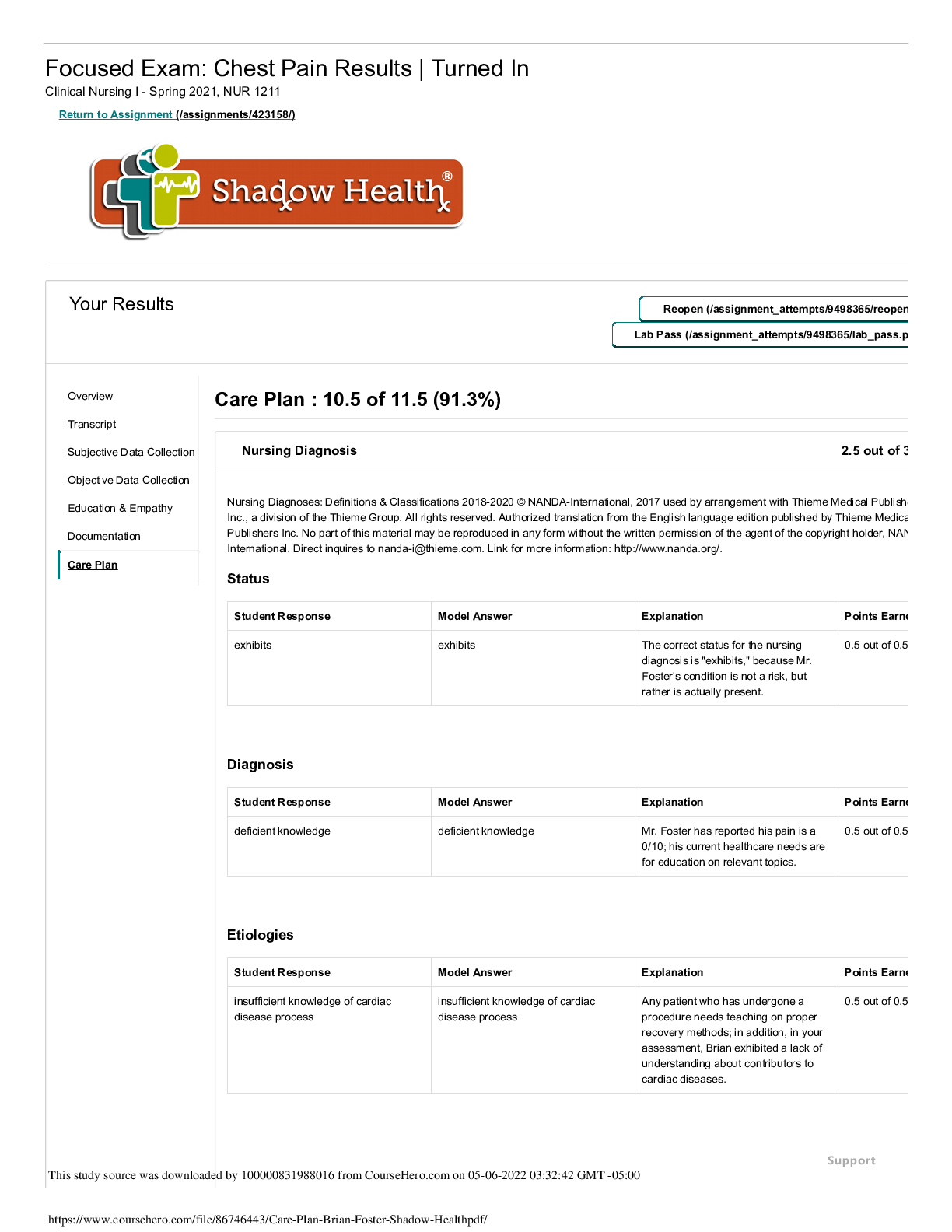
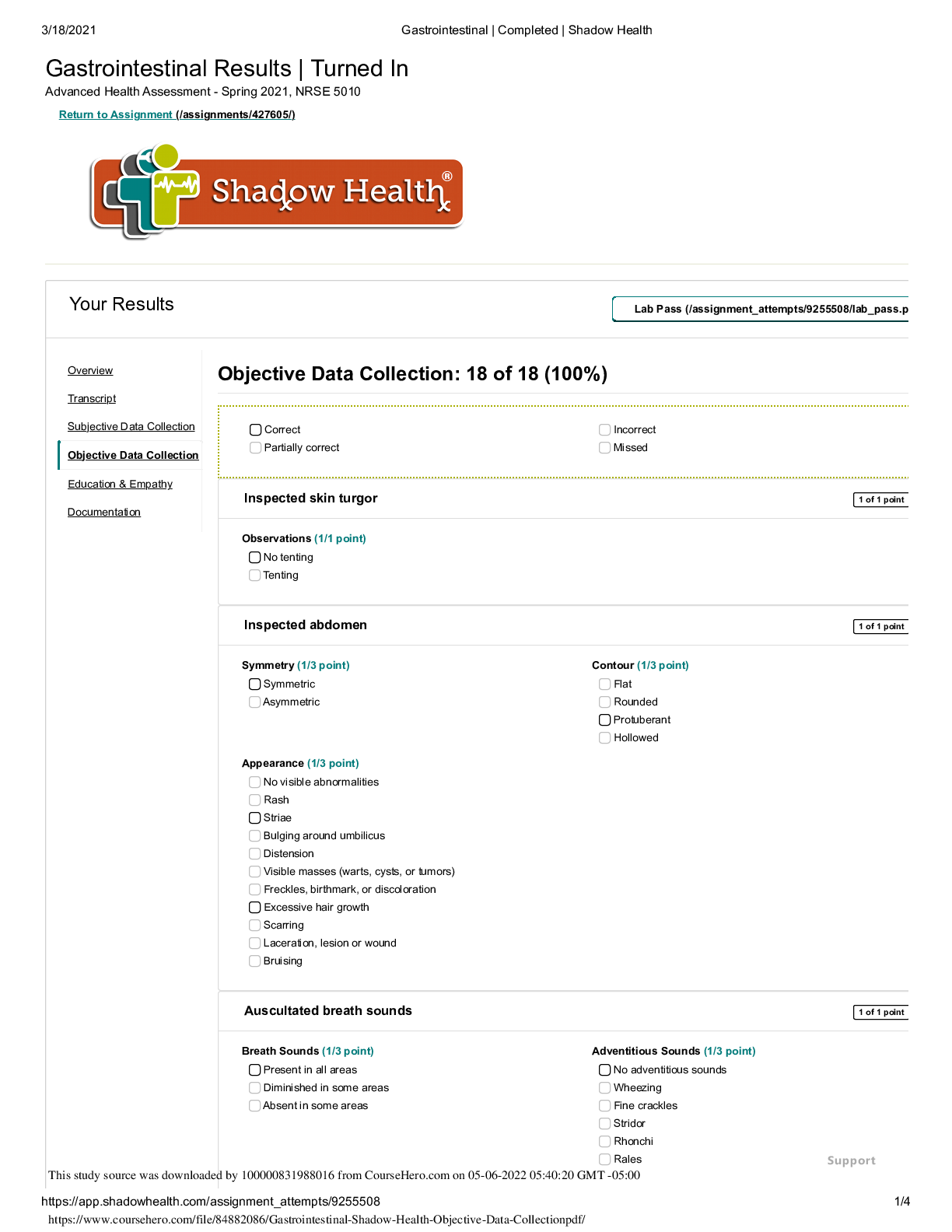





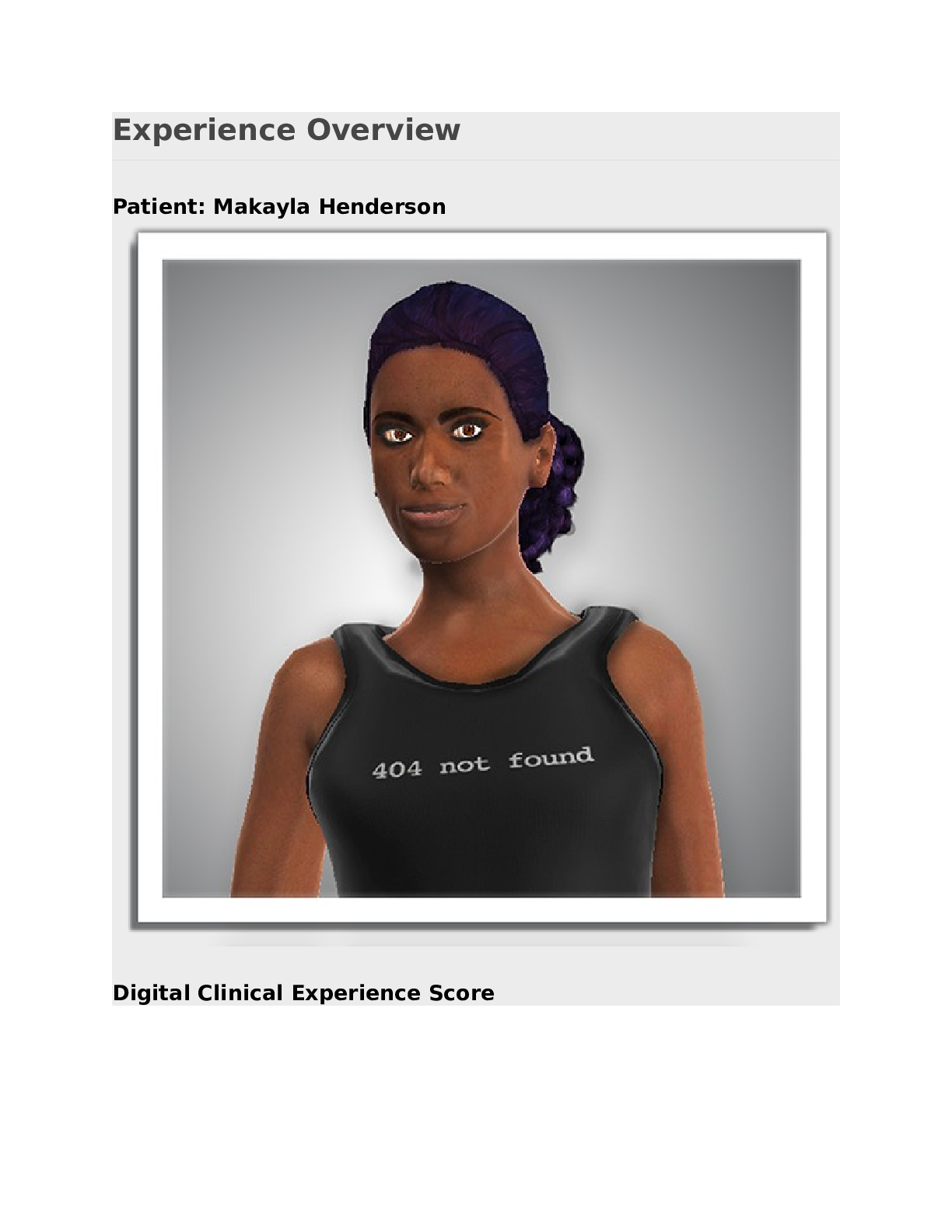

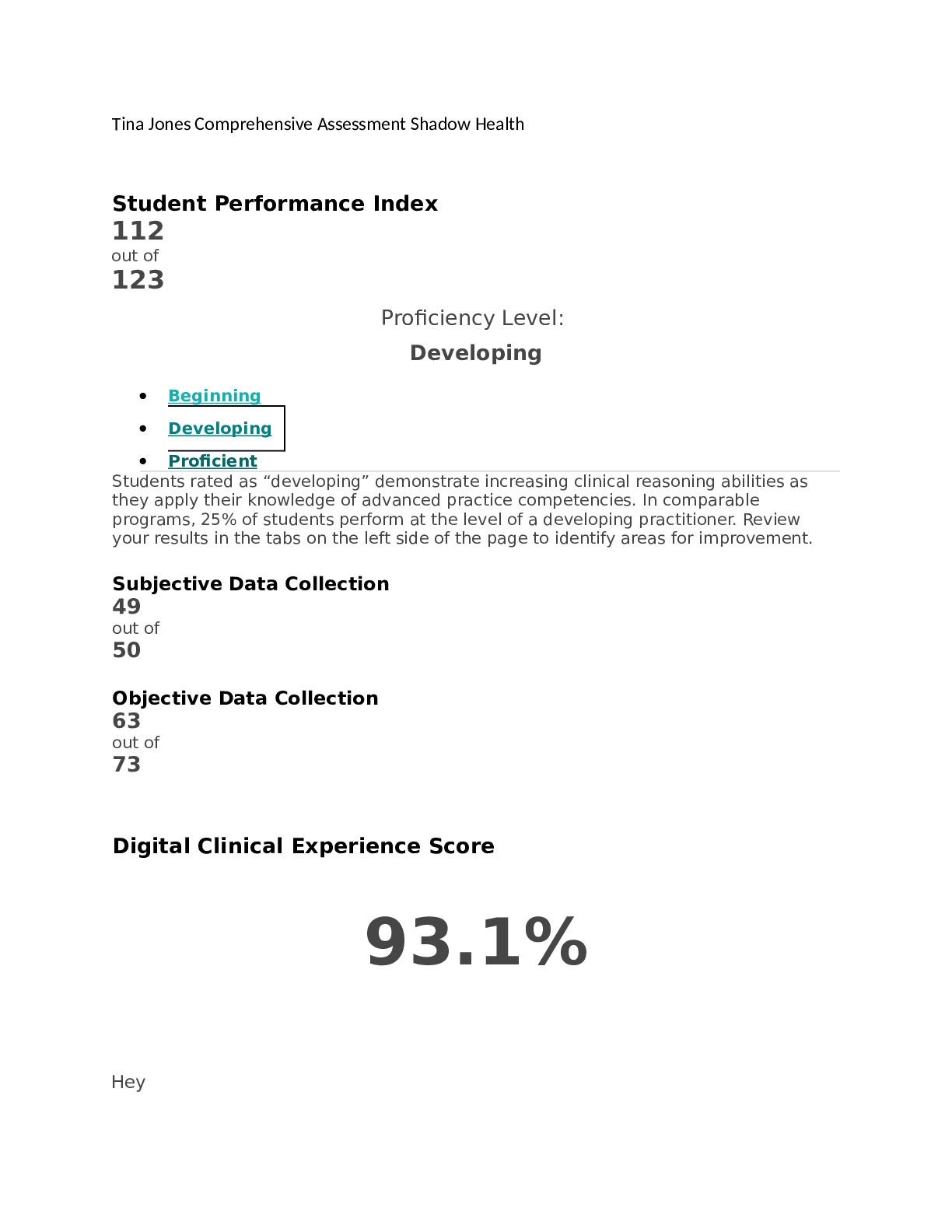
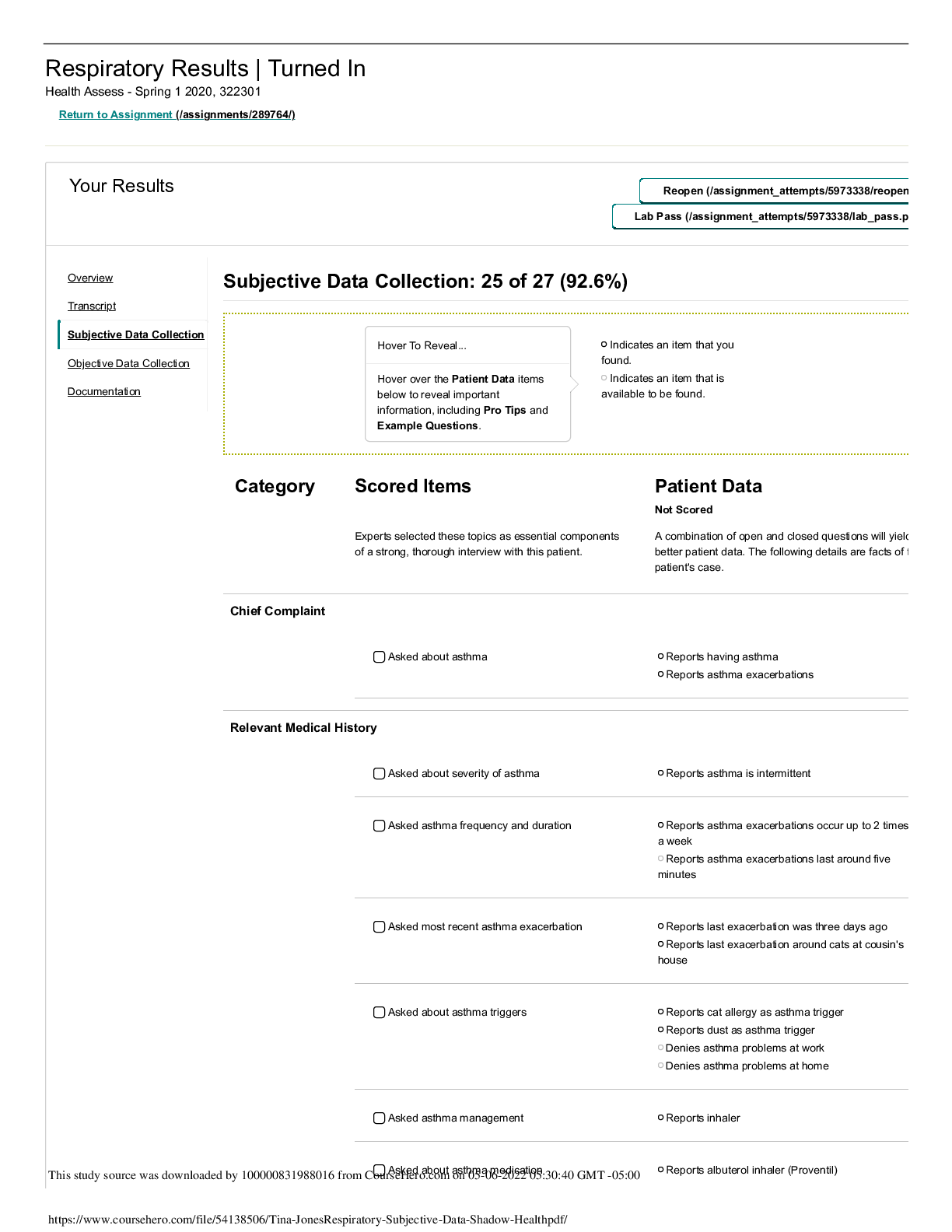



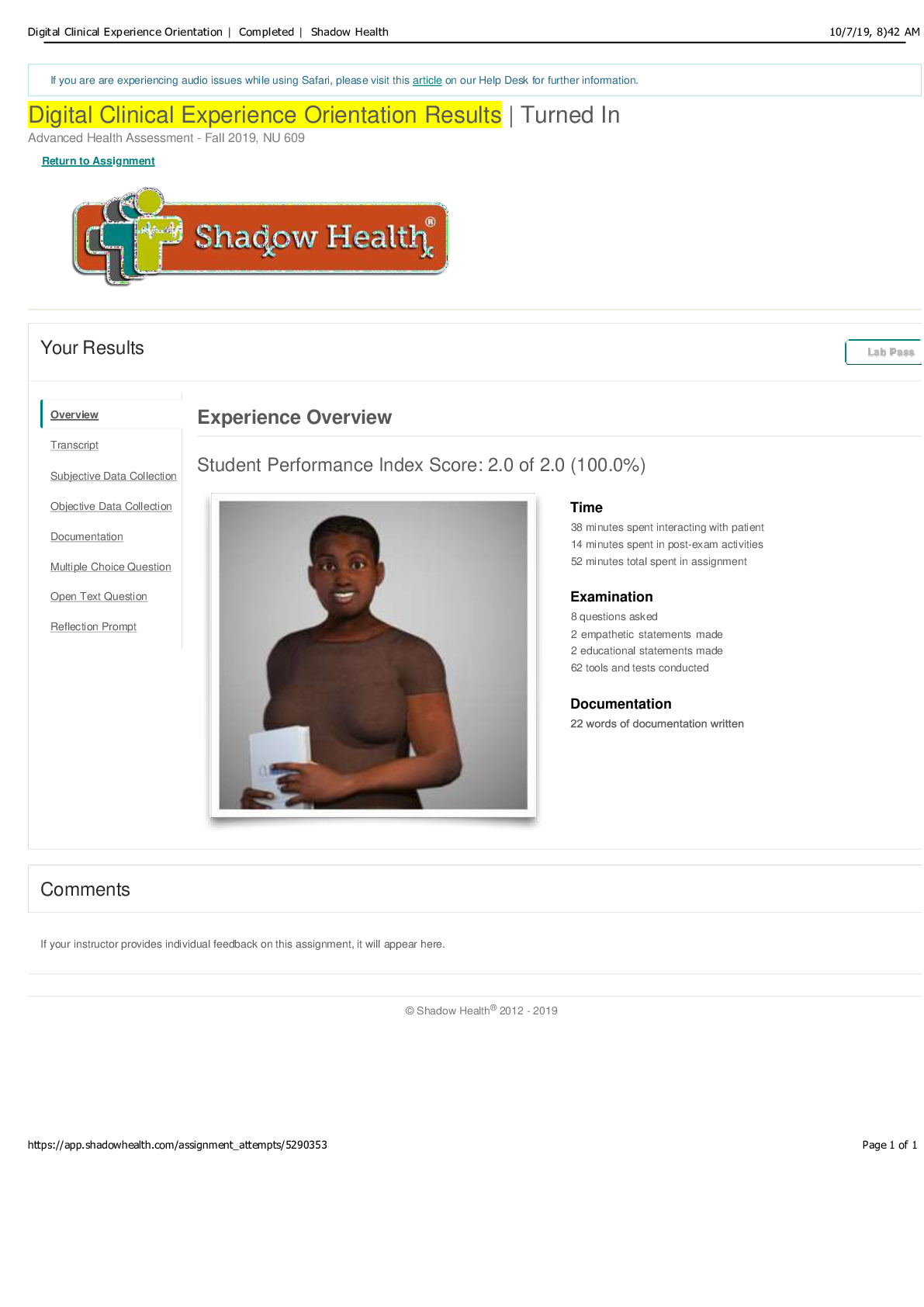
.png)
